INTRODUCTION
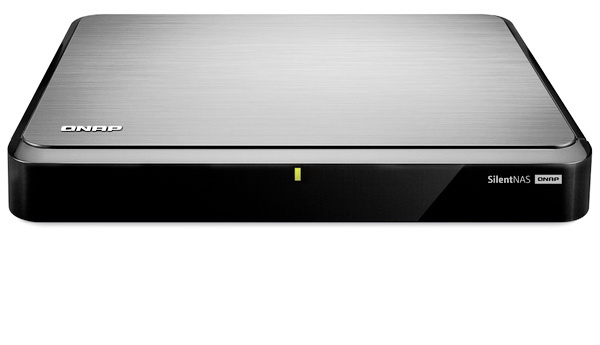
Ever since i started using and testing NAS devices I’ve always been on the lookout for one which could replace the media player i have in my bedroom since such devices offer so much more. Unfortunately if you're reading these lines then you are aware of the noise most NAS devices emit even at idle so they are not really what I’d call suitable for use in a bedroom especially at night. QNAP came up with a solution to that issue by releasing the SilentNAS HS-210 a few months ago a NAS device which was based around a passive cooling design so noise levels were only limited to those coming from the drives themselves. The lack of an HDMI output however didn't just surprise all of us here but it also rendered that project unsuitable for use with a TV set and thus my only hope was that QNAP would listen and resolve this with a future model. Well it didn't take long for them to do so since they just released the SilentNAS HS-251 and although it shares the same passive design as its predecessor it's not only improved in terms of specifications but it also features two HDMI outputs.
QNAP Systems, Inc., as its brand promise "Quality Network Appliance Provider", aims to deliver comprehensive offerings of cutting edge network attached storage (NAS) and network video recorder (NVR) solutions featured with ease-of-use, robust operation, large storage capacity, and trustworthy reliability. QNAP integrates technologies and designs to bring forth quality products that effectively improve business efficiency on file sharing, virtualization applications, storage management and surveillance in the business environments, as well as enrich entertainment life for home users with the offering of a fun multimedia center experience. Headquartered in Taipei, QNAP delivers its solutions to the global market with nonstop innovation and passion.
Because of both its size and lack of an active cooling system we all thought that QNAP would be forced to make use of low-performance components just like with the HS-210 but that obviously didn't stop them since the HS-251 is actually very similar to the TS-451 model (as revealed by model number). To be more specific the SilentNAS HS-251 wears the Intel Celeron Dual Core 2.41GHz J1800 CPU (the OpenGL 3.0 compatible Intel(R) MESA DRI Bay Trail version 10.0 ones again takes care of the graphics part), 2GB DDR3L RAM (our sample the HS-251-2G) and 512MB of flash memory (DOM). Features-wise the HS-251 comes ready with two 1GbE RJ-45 Ethernet ports, two USB 3.0 ports, two USB 2.0 ports and two HDMI v1.4a ports (one is reserved for service purposes by QNAP technicians) which can output even the heaviest bitrate media files (3D content included) on your TV set. The most important question however which we will do our best to answer today is whether or not the SilentNAS HS-251 can match the performance of the TurboNAS TS-451 since aside the number of bays these two models are pretty much identical.
SPECIFICATIONS AND FEATURES
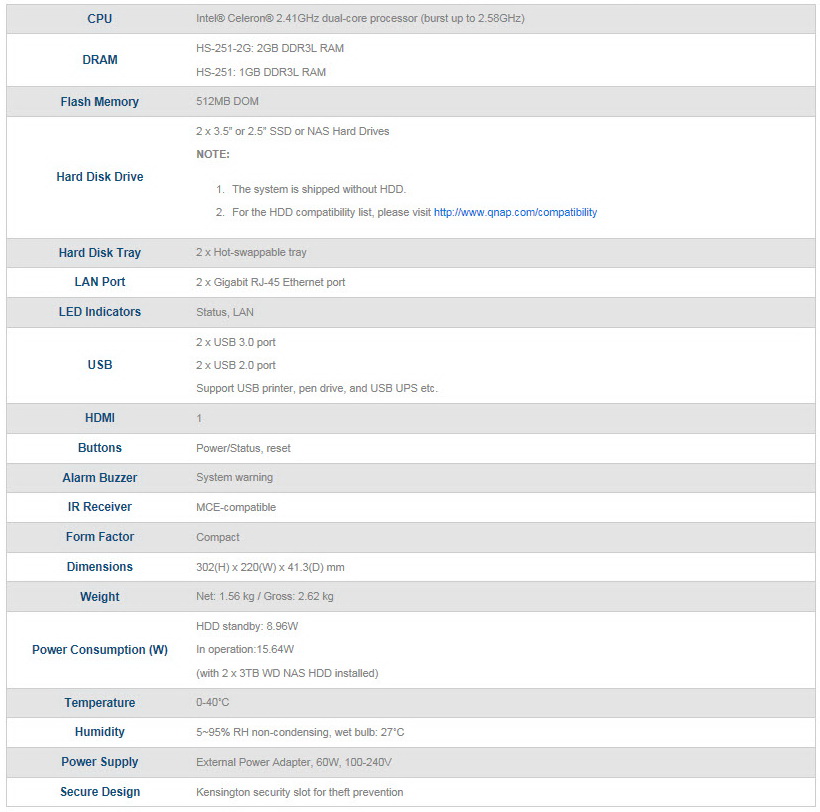

PACKAGING AND CONTENTS
The box has a large picture of the HS-251 at the front along with its main specifications and the QNAP logo.
5 pictures of the HS-251 are placed on the left side and are used to showcase it's main features. QNAP also recommends WD Red drives for use with the HS-251.
Some of the available stations are mentioned on the right side in 23 languages.
Moving at the rear of the box we see a few words about the most popular stations offered by QNAP.
Once you open the box you will see five 2D barcodes which you can scan with your smartphone to reach QNAPs social media and a drawing of the bundle contents.
Both the HS-251 and its bundle are placed between two thick foam spacers.
With the HS-251 and its power adapter QNAP has also placed two Ethernet cables, two small plastic bags with screws for both 2.5" and 3.5" drives, getting started guide and the quick installation instructions.
THE SILENTNAS HS-251 EXTERIOR
As you all know the HS-251 looks identical to the HS-210 and so once again we see the same flat design enclosure which measurements of 302mm in length, 220mm in width and 43,1mm height and weighs 1.56kg.
Just like with the HS-210 the QNAP logo and model name can be found on the right end of the fascia and at the top.
The fascia is easily removed to reveal the two inverted drive trays.
These trays are made out of aluminum and can accommodate both 2.5" and 3.5" drives.
Turning the device around we see the DC power in, reset button, two USB 2.0 ports, two Gigabit Ethernet Ports, Kensington lock, two HDMI 1.4a ports, two USB 3.0 ports and the power on/off button.
As mentioned in the intro page one of the HDMI ports is reserved for QNAP technicians who may need to service the device if something goes wrong.
The enclosure sits on 4 round rubber feet and is held together via 6 screws again found at the base.
THE SILENTNAS HS-251 INTERIOR
The board is also identical to that of the HS-210 something which i personally didn't expect.
Apacer is once again the supplier for the 512MB flash memory DOM.
SKhynix Double Data Rate III (DDR3L) Synchronous DRAM modules are present on the board (adding up to 2GB).
The asmedia ASM1074 USB 3.0 HUB Controller is responsible for the USB 3.0 ports of the device and the ASM1442 high speed TMDS level shift IC is responsible for the HDMI ports. Unfortunately since the board got stuck we were unable to turn it over to take a look at the CPU (didn’t want to risk damaging it).
As usual for this test we used two enterprise grade Seagate Constellation ES.3 4TB drives but it's worth mentioning that the recommended WD Red drives are more suitable for 24/7 operation due to their reduced temperature levels and power consumption (our tests however focus mostly on performance).
We also wanted to mention that the tiny remote control which QNAP sells separately worked like a charm throughout our tests so if you're looking for an easy way to control the HS-251 this is for you.
SETUP
To perform the setup procedure you will need to head over to the official QNAP support page to download the latest Qfinder program version.
Once you locate the NAS and double click on it you will be prompted to choose between quick or manual setup (don’t worry the procedure is very easy so pick manual).
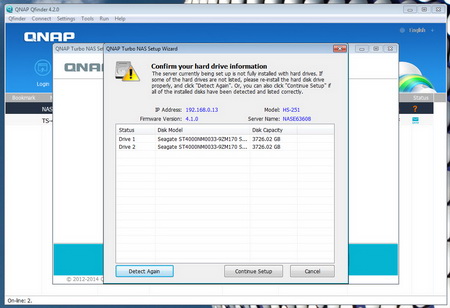
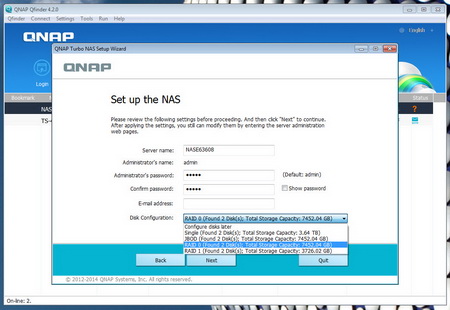
You can also setup the preferred RAID mode for the installed drives or leave it for later on.
After you are done with all the settings the process takes less than 5 minutes to complete.
WEB INTERFACE PART 1
The QTS login screen is as usual colorful to say the least.
The GUI screen looks great as always and so at the root screen you will find the icons of the main available/installed stations.
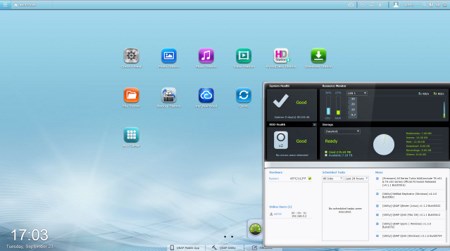

The very detailed resource monitor can be accessed from the lower left corner while a drop down start-like menu can be accessed from the top left corner.
If you’ve been following our QNAP NAS Server reviews you know that everything goes through the control panel of the QTS.
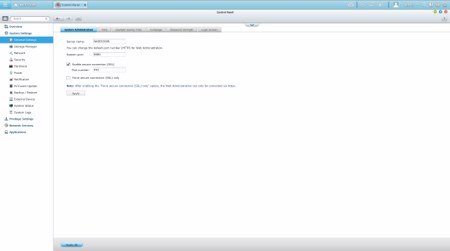
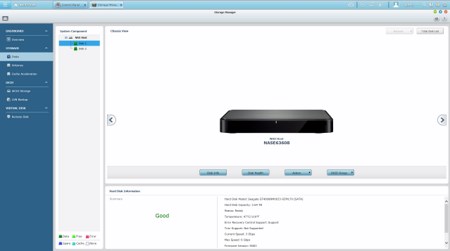
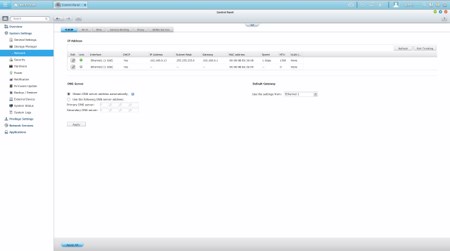

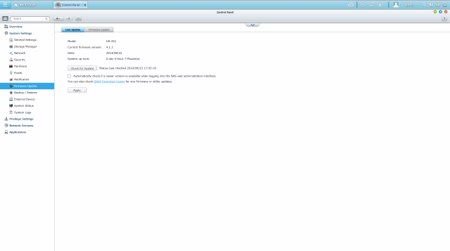
Via the System Settings menu you can set the name for the server, adjust time, set a password, specify your location, adjust the network IP, play around with power options, set notifications, check the state of the installed drives, create RAID and Virtual drives, enable/disable security settings, configure the speed of the fan, check hardware information, setup backup options, access external device settings, check the logs and of course perform firmware updates.
The Privilege Settings tab is very basic and allows you to create new users, assign those users to groups, setup shared folders, set specific quotas for each user and configure domain security.

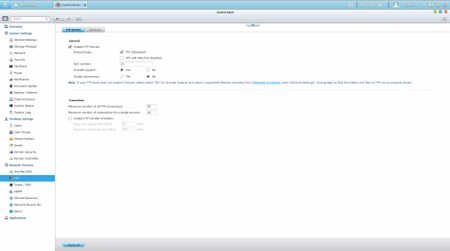
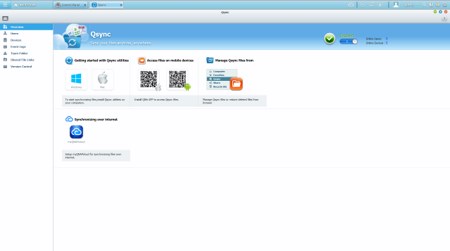
From within the Network Services menu you will find everything network-related including FTP settings, Telnet service settings and service discovery settings. You can also setup/configure the Qsync application which allows you to have your files synced between the NAS and your other internet capable devices at all times.


In order to use some of the installed stations you will need to enable them from within the Applications tab.
WEB INTERFACE PART 2
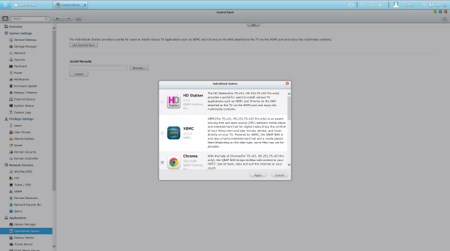
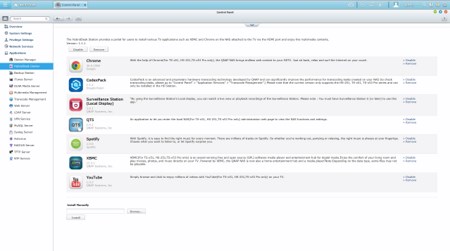
In order to install the HD Station and the XBMC app after (YouTube also needs HD station) that you will need to do it from this tab which was not found in previous QTS versions.
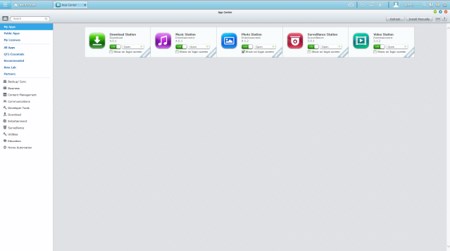
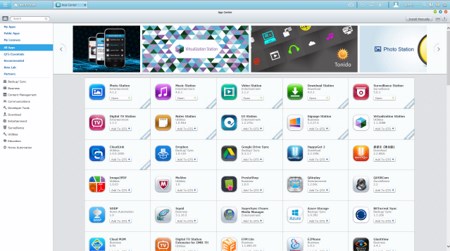
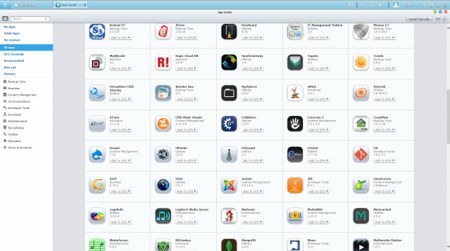
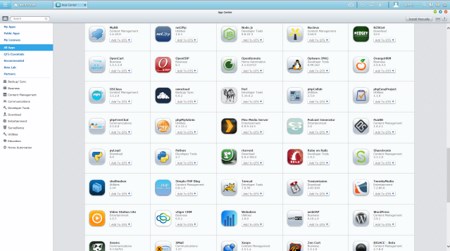
By default the QTS has several applications/stations installed but you can install a lot more from within the App Center.
Via the Photo Station you can see and share all your pictures with other PC and mobile devices.
With the Music Station you can stream and playback your entire music collection without switching to an external application.
Via the video station you can share video clips with other people.
One of the things i like about QNAP NAS servers is that you can use the preinstalled Download Station either to download torrent files or directly from HTTP/FTP (although RuTorrent is a much more detailed and feature-rich solution).
As always the File Station allows you to transfer files to and from the NAS and looks quite a bit like the Windows explorer (i dor ecommend accessing files from the windows explorer however and you can do so even faster by mapping the shared folder as a drive).
The myQNAPCloud service allows the end user to have access to the NAS from anywhere and also to create an online storage account either with Amazon Web Services or Elephant Drive.
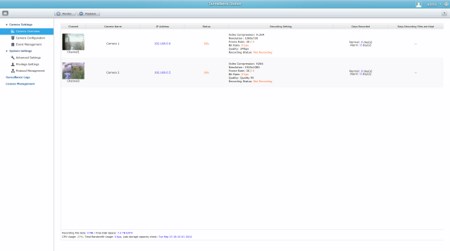
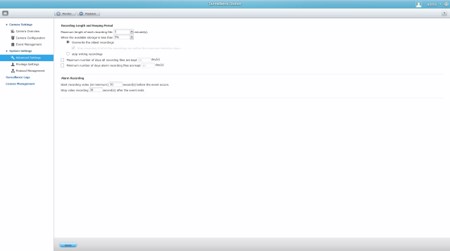
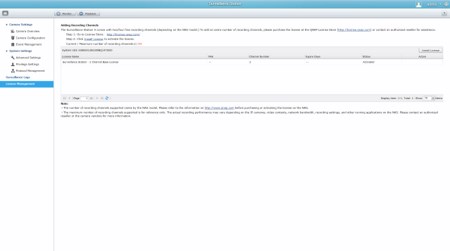
The Surveillance Station Pro allows you to connect up to a total of 42 IP cameras to the NAS (although the default licence is for 2) from a very large range of manufacturers (even if your camera is not present you can use the several compatibility modes).
XBMC SOFTWARE
If you choose to connect the HS-251 to your TV set via HDMI you can not only access its basic functions and settings but you can also use the Surveillance Station, YouTube, Chrome and XBMC.
The XBMC application basically transforms the NAS Server into a HTPC thus you can use it from the comfort of your bed or sofa especially if you have the optional remote control.
As always you have the option to personalize the XBMC application quite a bit (for example change the skin of the menus and set the region/language/audio language options).
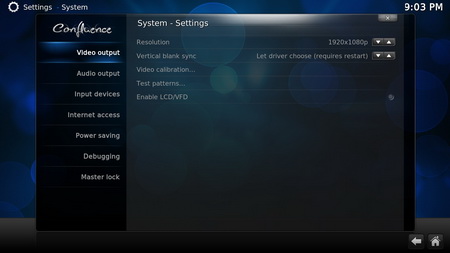
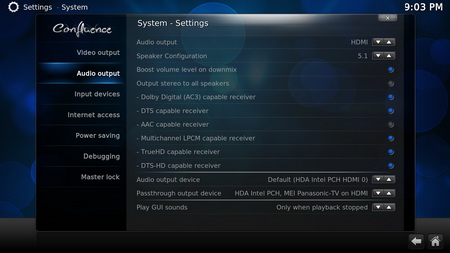
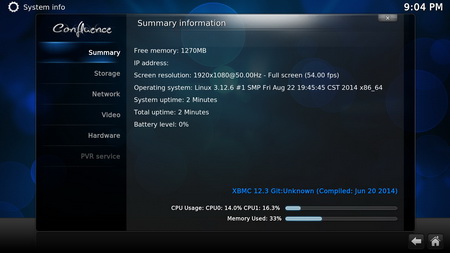
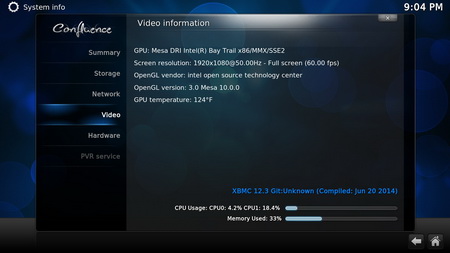
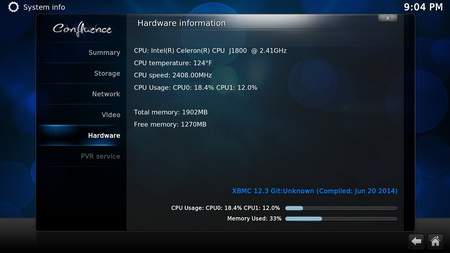
Important information like the hardware components of the unit are accessible through XBMC much like the several video and audio settings.


Again we used our Blu-Ray MKV rip of Avatar S.E (42GB) to test the playback capabilities of the HS-251 and aside a few delays in the picture we didn’t' come across any serious issues while watching this movie so once again we took a couple of screenshots for all of you to see the level of detail.
TESTING METHODOLOGY – PERFORMANCE RESULTS
Originally we had decided that since some of the NAS servers/devices we've tested in the past are no longer in our possession (naturally) we would keep performing the exact same testing methodology we did in the past for as long as possible in order to provide accurate comparison results. However since our real-life tests are not enough for some people we also decided to throw in ATTO and Crystal Disk Mark to cover the more demanding users (it will take time to "populate" those charts however). However as always we will be using Seagate Constellation ES.3 4TB SATA III hard disk drive(s) (in order to also perform RAID tests we were able to switch from the old ES.2 model to the ES.3 since we recorded no differences between them when used inside NAS servers) with the unit at hand and perform several upload/download tests with 10.9GB (Single) and 40,8GB (RAID) files. Tests are repeated a total of 4 times after which we record the average numbers (from the 4 peak ones) into our charts. Finally the network device used is the same Netgear DGN3500 Gigabit ADSL2+ Modem/Router we always use when performing tests on NAS servers.
SINGLE DISK TESTS

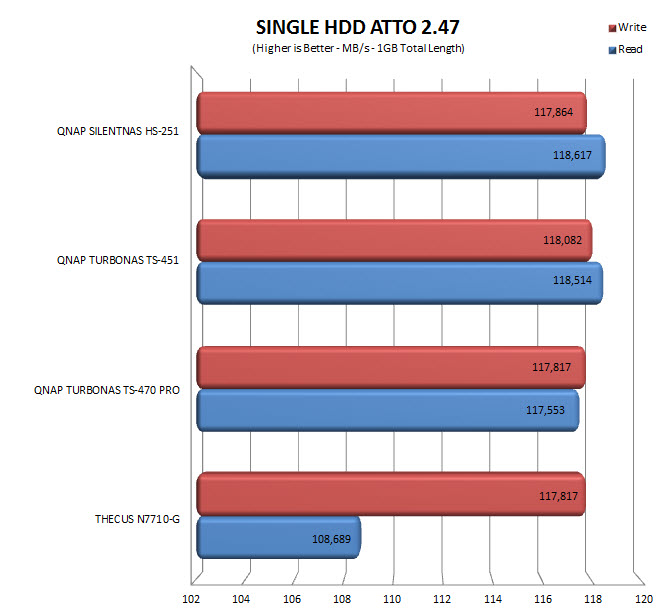
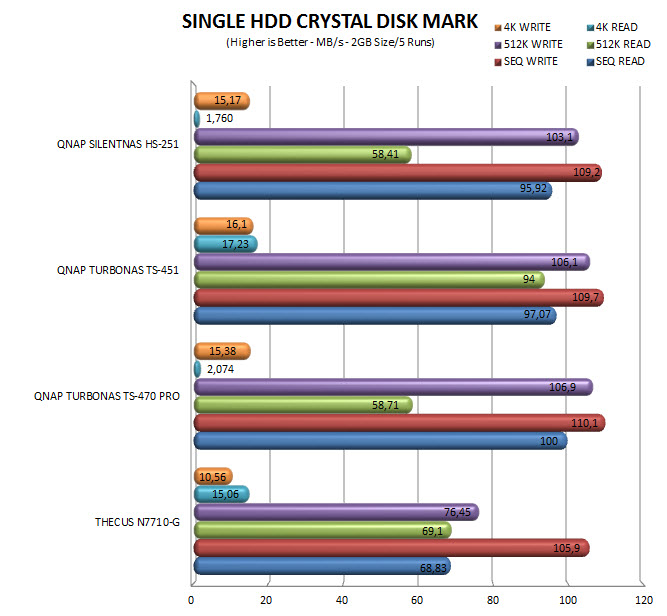
RAID TESTS
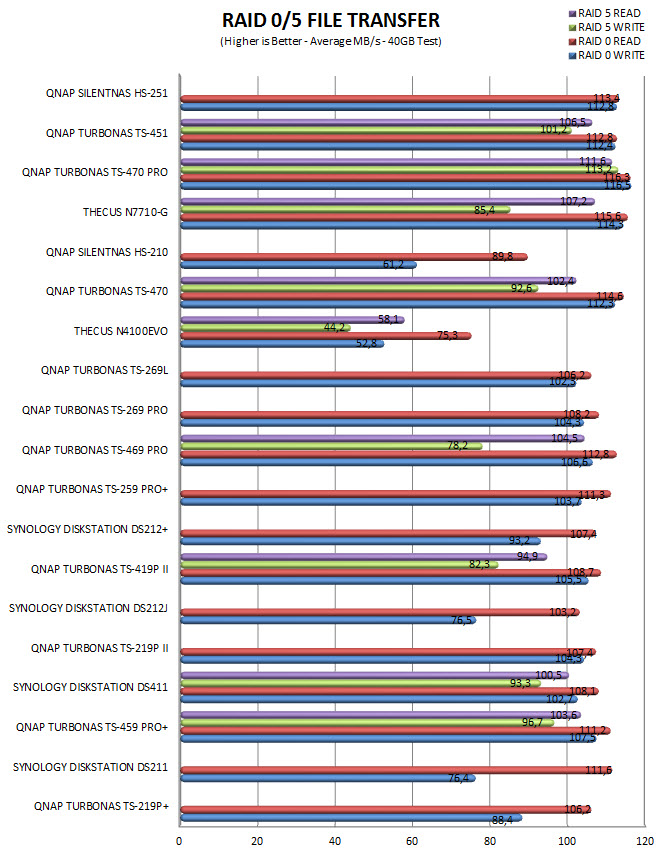
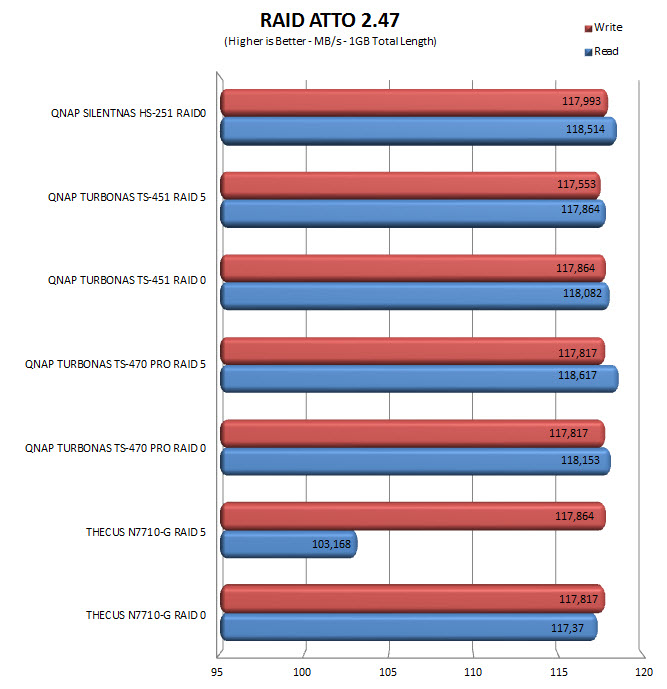
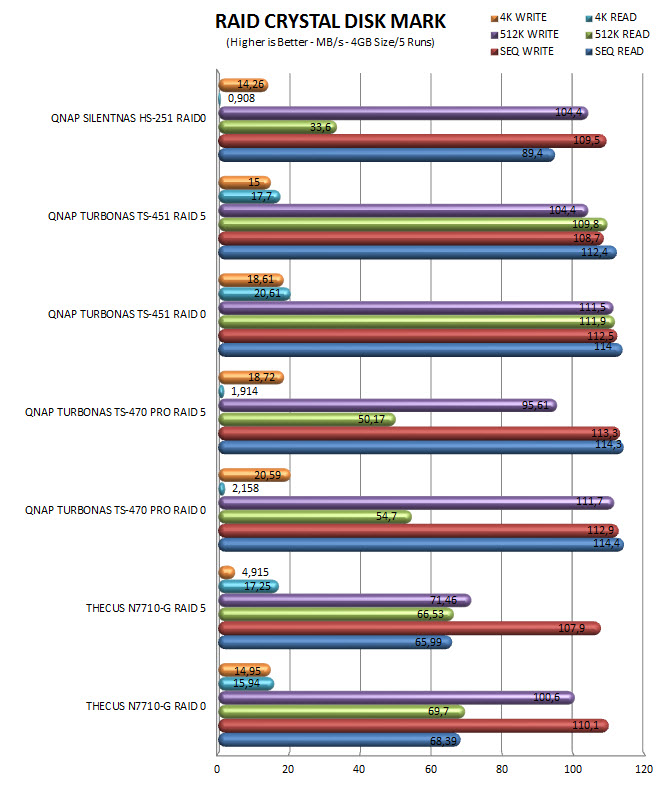
TEST RESULTS – TEMPERATURES / CONSUMPTION / NOISE
TEMPERATURES
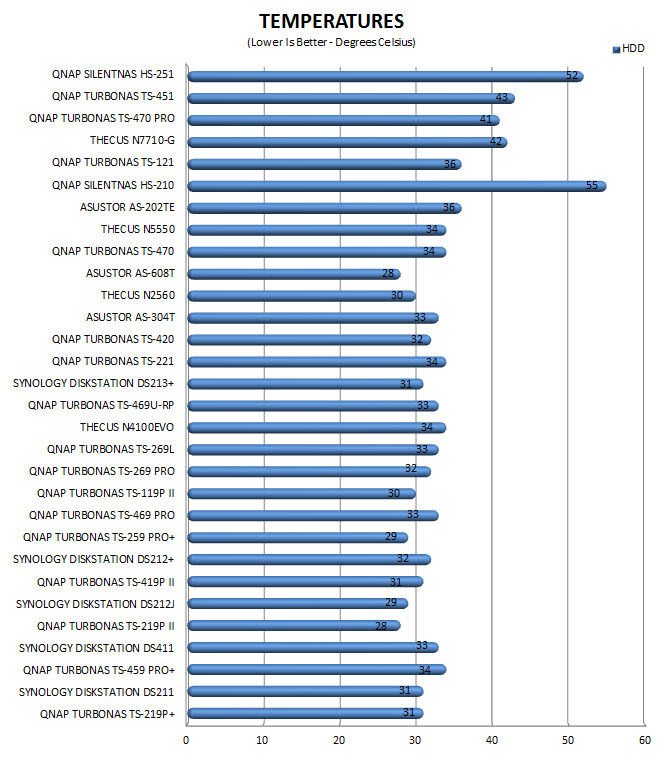
POWER CONSUMPTION
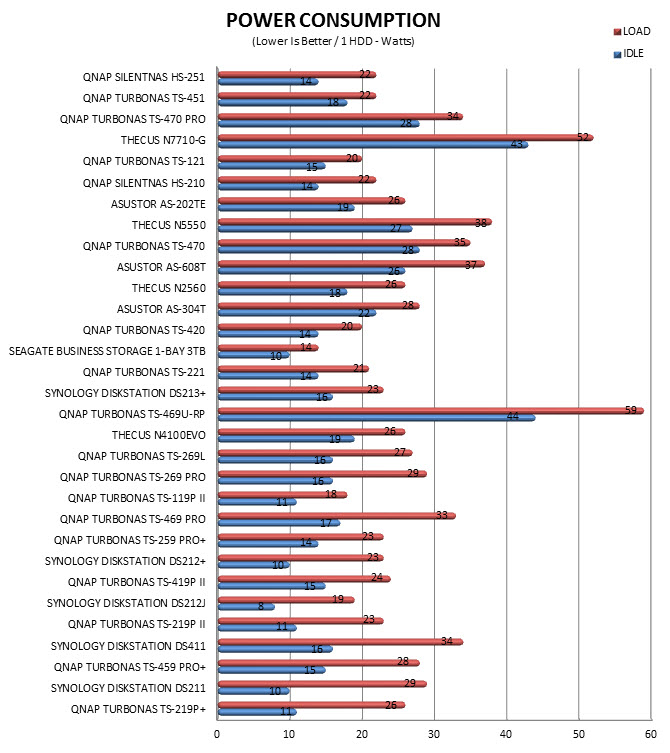
NOISE LEVELS
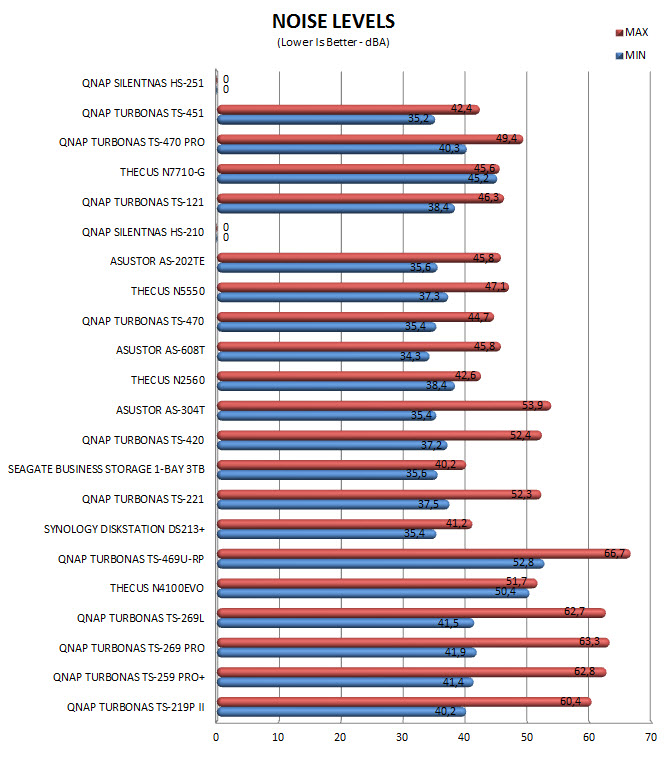
CONCLUSION
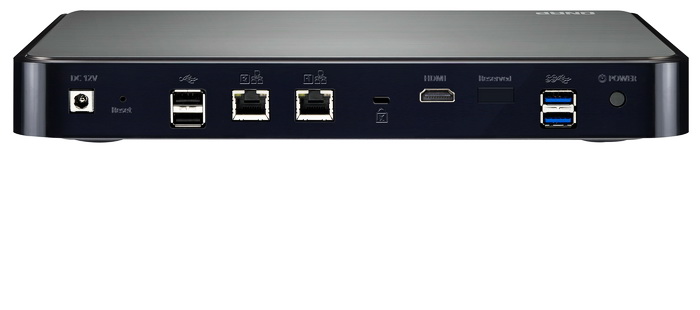
I don't really need to point out that we were all impressed with the performance of the HS-251 since that's very easy to see just by taking a quick look at our charts. Actually i was more than just surprised since i never expected a passive cooling solution to match and even surpass in some areas its more expensive brother which also uses active cooling (the TS-451 in this case). Overall in terms of performance the SilentNAS HS-251 does extremely well and should cover even the most demanding consumers. Power consumption was also very low and as a matter of fact identical to that of the HS-210 something which was quite strange (strange but a welcome result). The only problem we came across with the SilentNAS HS-251 also happens to be its primary selling point and that's the passive cooling system since it may work as advertised but i wouldn't recommend using this NAS 24/7 (unless temperatures in the room are very low) as i wouldn't recommend using enterprise grade drives like the ones we do for our tests. WD Red drives may not be as fast but because of that they don't build up as much temperature, they are quieter and they have reduced electrical requirements.
Mid-End NAS Servers may offer very good performance levels with a wealth of features but at a cost and so the new SilentNAS HS-251 with its current price tag of USD420 inside the USA (Amazon.com) and 463.66Euros inside the EU (Amazon.de) doesn't come cheap. However you all see what it's capable of and what it can offer so we don't think QNAP is asking for much. I would of course like them to go back to the drawing board to redesign the enclosure used in the SilentNAS series and perhaps equip it with several heatsinks inside to absorb temperature from both the system components and the HDDs (would increase size a bit but i doubt people would mind) but even so the HS-251 is ideal for home use as is. Performance, features, zero noise (coming from the NAS not the drives) and size are the things in which the SilentNAS HS-251 excels at and because of them it gets our Platinum Award.
 PROS
PROS
- Build Quality
- Intel Celeron J1800 Dual Core CPU
- Excellent Performance
- Design (Set Top Design)
- Passive Cooling (Silent)
- Features
- 2 Gigabit Ethernet Ports
- 4 USB Ports (2xUSB 3.0 / 2xUSB 2.0)
- Dual HDMI v1.4a Output
- RAID 0/1
- SATA III (6Gb/s)
- QTS 4.x.x OS
CONS
- HDD Temperatures
- Price (For Some)

 O-Sense
O-Sense





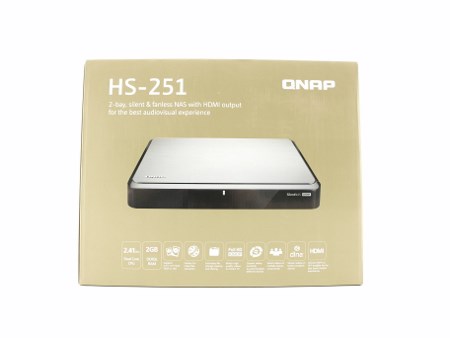
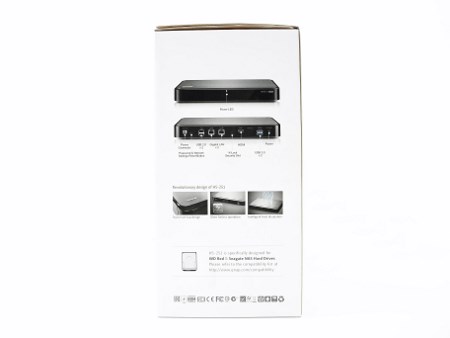


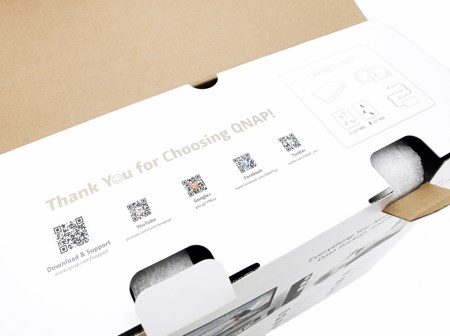
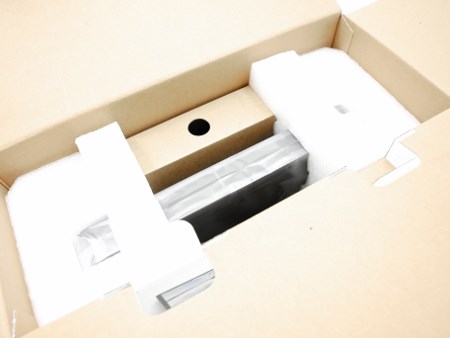
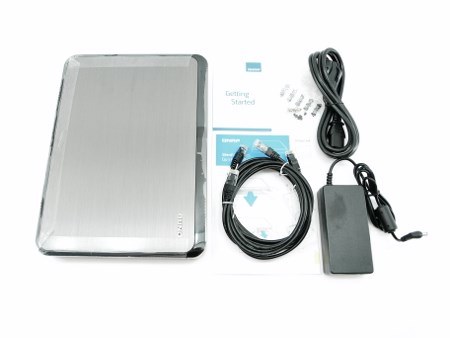
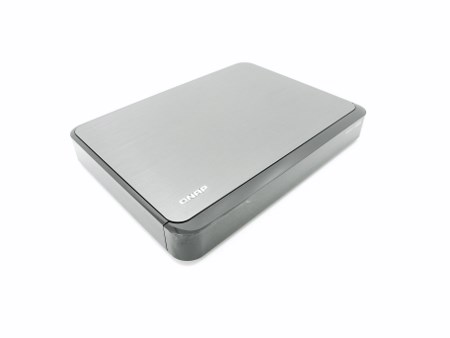
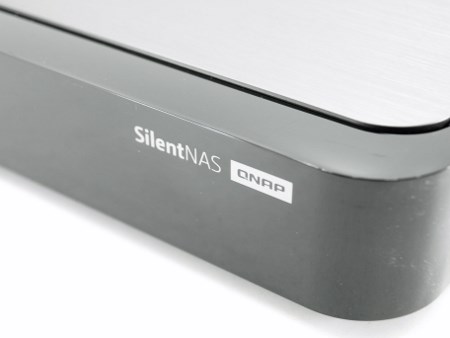
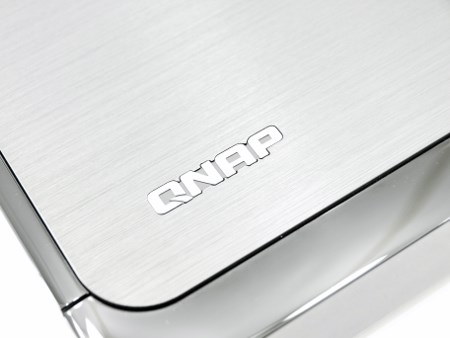
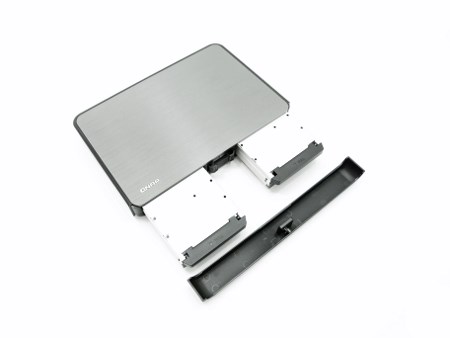
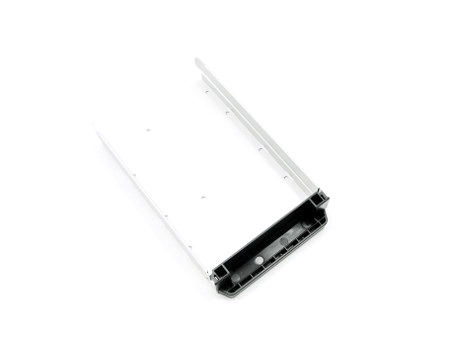
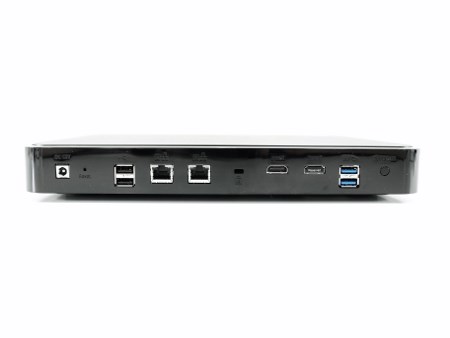
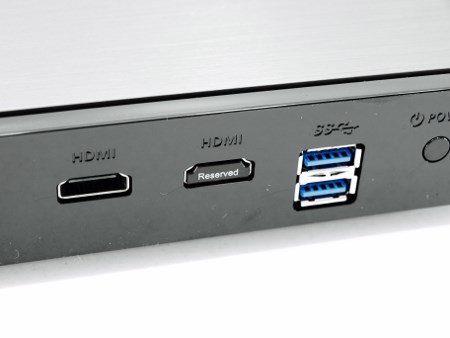
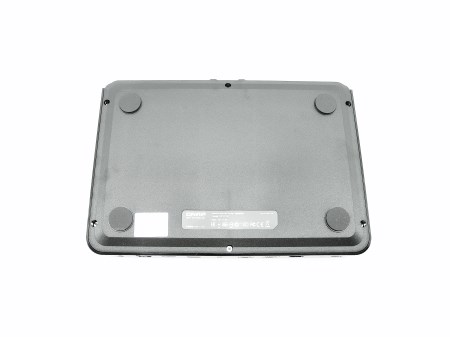
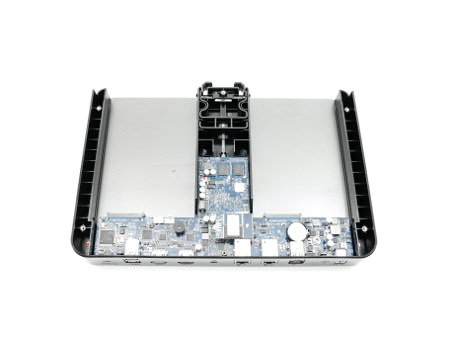
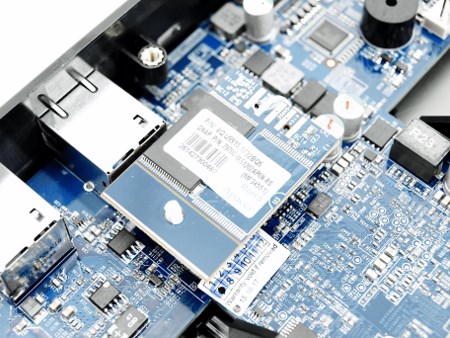
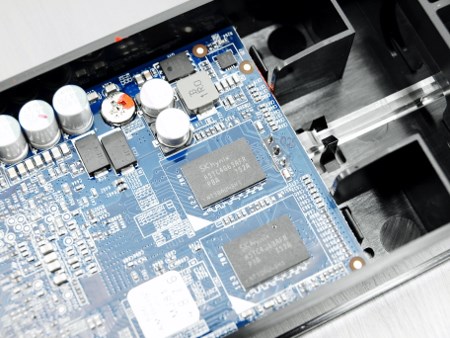
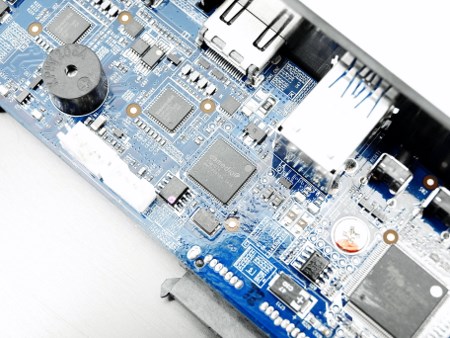
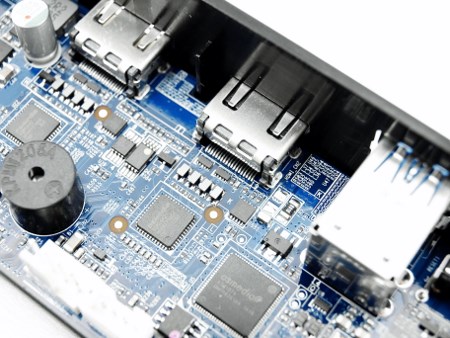
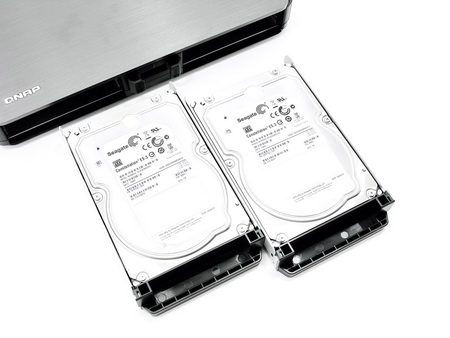

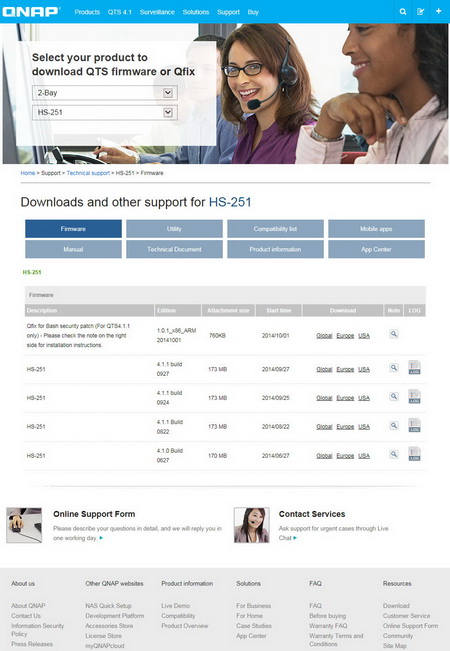
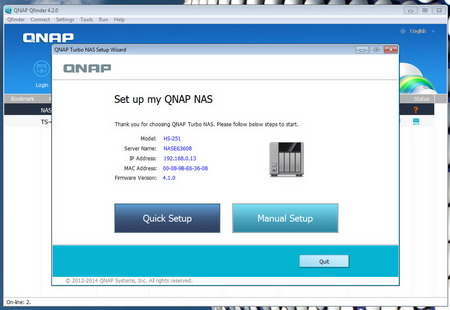
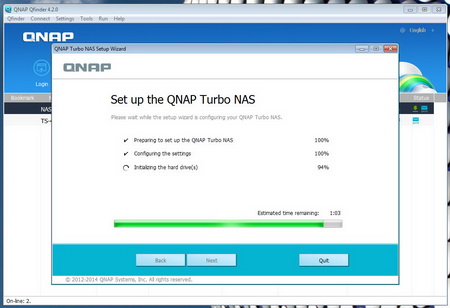


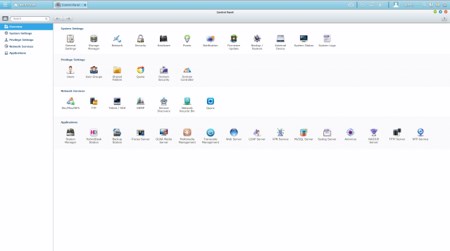






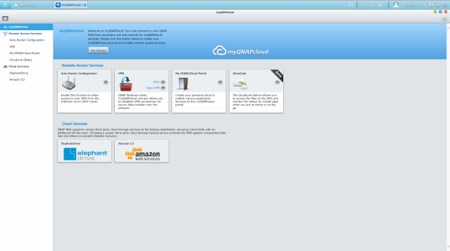
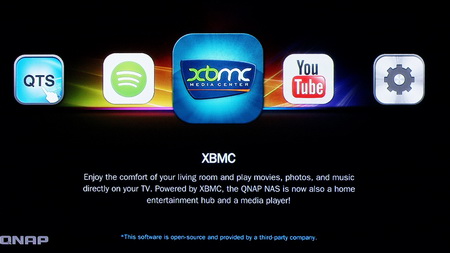
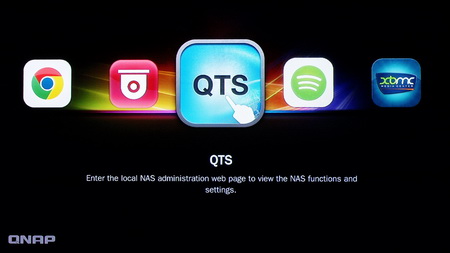

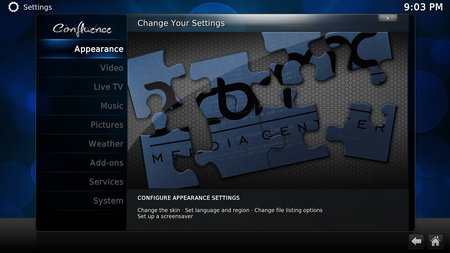


.png)

